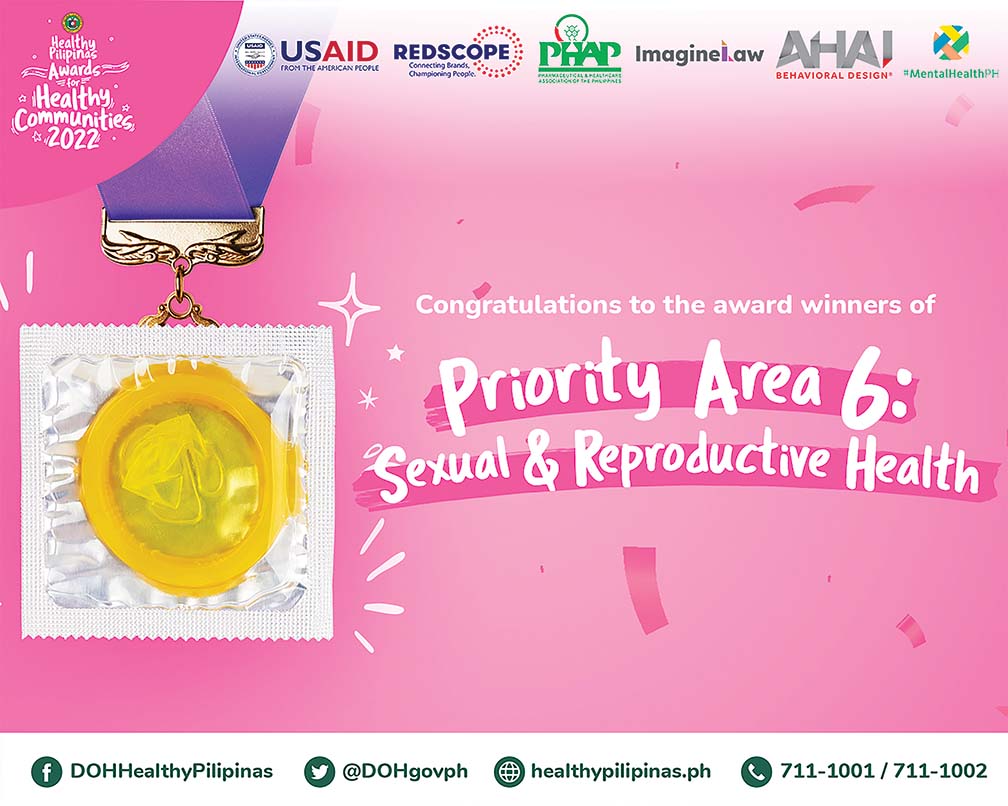Cabuyao, Laguna—Talk Show with Dra. David at Cabuyao on Air (Population Health and Development)
The Population Health and Development (PHD) talk show is a canned radio show that is broadcast live on TV6, Laguna Channel Royal Cable every Monday to Saturday 6 p.m., Cabuyao on Air FB livestream Aired every Tuesday/ Wednesday, and Philippine Updates NET.
The radio show tackles topics related to adolescent health and development, responsible parenthood and family planning, reproductive health, and gender-based violence, among others, with different resource speakers.
Viewers are reached through TV, radio, and social media with viewership reaching up to 10,000 per episode. Experts are invited as guests in order to provide credible and factual information.
On the whole, the program informs online users and televiewers about certain topics only experts can explain. It eradicates fake news, and promotes the importance of credible news. The dissemination of information can reach all possible target participants even amidst the pandemic because it involves media access that is readily available. It can educate the target population and help improve the quality of life. PHD, now in its 2nd year (Season 2), considers broadcasting as a very powerful medium that can change public opinion on a whole array of issues. It can persuade netizens to take action that will better their lives.
Cagayan de Oro City—Teensights: Adolescent Sexuality and Reproductive Health Insights (Online Campaign)
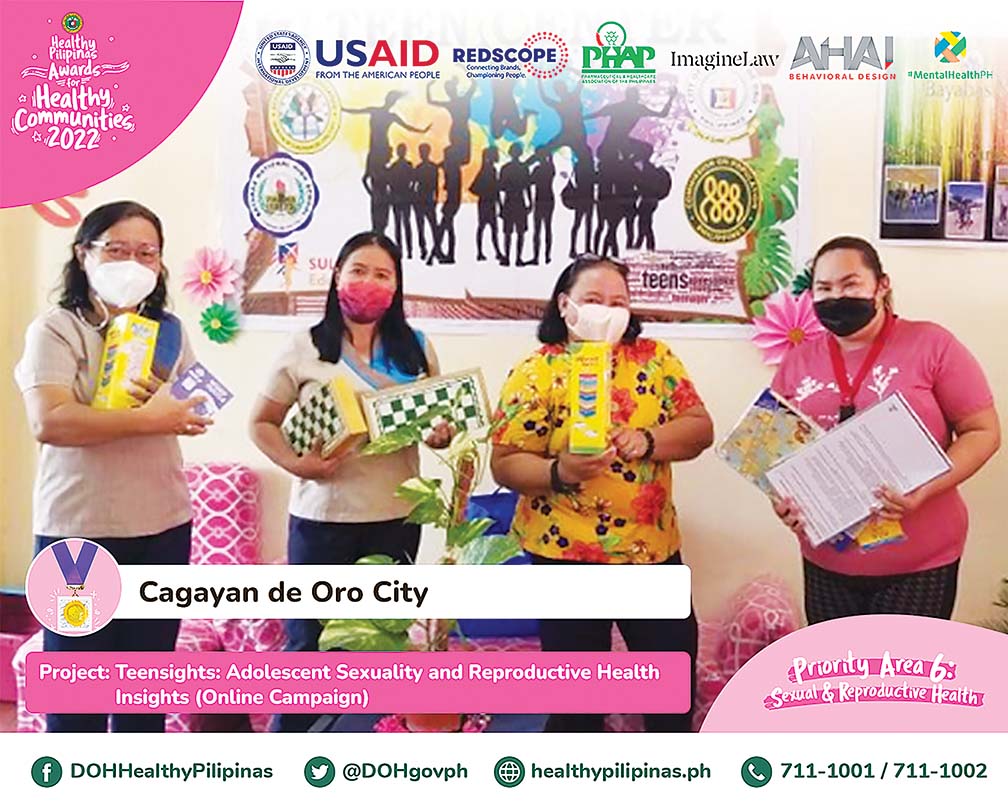
Teensights aims to promote the total well-being of the city’s young people—particularly those in school, the community-based youth, and the out-of-school youth—by delivering crucial and critical information on adolescent sexuality in hopes of preventing teenage pregnancy and other sexual and non-sexual risky behavior in the midst of the pandemic.
The service goals of this online demand generation for the Adolescent Health and Development Program include: 1) continue the information and education campaign for adolescent health and development, despite movement restrictions imposed by the pandemic; 2) reach both public and private school secondary students (grades 8-12) as well as out-of-school youth; 3) produce information, education and communication materials suitable for online delivery; 4) engage and strengthen partnerships within Cagayan de Oro City public, private, and community sectors in Adolescent Health and Development advocacy; 5) provide effective Adolescent Health and Development information and education as reflected in improved knowledge among target adolescents; and 6) reduce teenage pregnancy and repeat pregnancies among young people.
The Education Department was responsible for the participants. The Oro Youth Development Office secured a little over P100,000 budget while the 1st Valley Credit Cooperative shouldered the prizes for the students and the school-based teen centers. PHINMA Cagayan de Oro College also participated in this collaboration by giving out the honorarium and other prizes amounting to over P150,000. The City Information Office also lent a helping hand by promoting and popularizing the series.
Two episodes were conducted last year—Fertility Awareness/Human Sexuality and Risk and Prevention of Teenage Pregnancy.
Dumaguete City—Sexual and Reproductive Health Promoting Positive Sexual and Reproductive Health in Dumaguete City
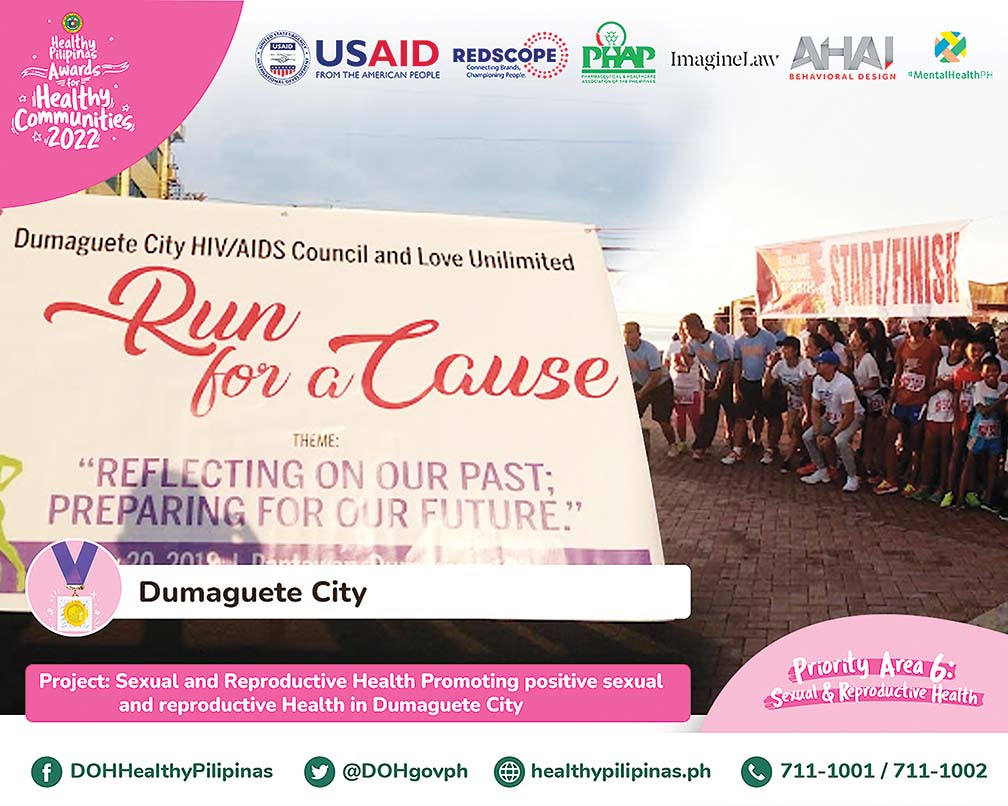
In response to the national mandate to take action on HIV/AIDS, the Dumaguete City LGU in Negros Oriental, through the Sangguniang Panlungsod, enacted City Ordinance No. 37, series of 2008, otherwise known as the “Dumaguete City Multi-sectoral STI/HIV Council.”
This significant milestone was signed in April 2008 with an annual appropriation of P300,000 to fund various HIV-related activities and to purchase curative and preventive commodities. According to Ordinance No. 37, the council is a central advisory and policy-making body on the control of STIs, HIV, and AIDS.
Since 2009, the STI HIV/AIDS council has been actively involved in the promotion of prevention and control activities through information dissemination and special events; the conduct of voluntary counseling and testing among key affected, vulnerable, and general populations; and the facilitation of capacity building of advocates, people living with PHIV (PLHIV), and stakeholders from other government agencies, the private sector, and non-governmental organizations.
Despite these interventions, STIs, HGIVs, and AIDS continue to increase in number, especially among young adults. The stigma has been reduced, testing facilities are easier to get to, and testing is done on-site at the City Health Office Social Hygiene Clinic.
Eventually, there will be a lower number of new cases as there is raised awareness in the community. The working class, who are most affected, have fewer days of absence or tardiness from work due to illness. More working hours translate to bigger take-home pay. Also, most at-risk individuals are aware of the health impact and its complications—especially on the possibility of not only STI and HIV/AIDS transmission, but of COVID-19 transmission, as well. There were only 47 who accessed testing and 78 who were given counseling at the Social Hygiene Clinic for the year 2021.
Puerto Princesa City—Sustaining Reproductive Health Services Gearing Towards Population and Development
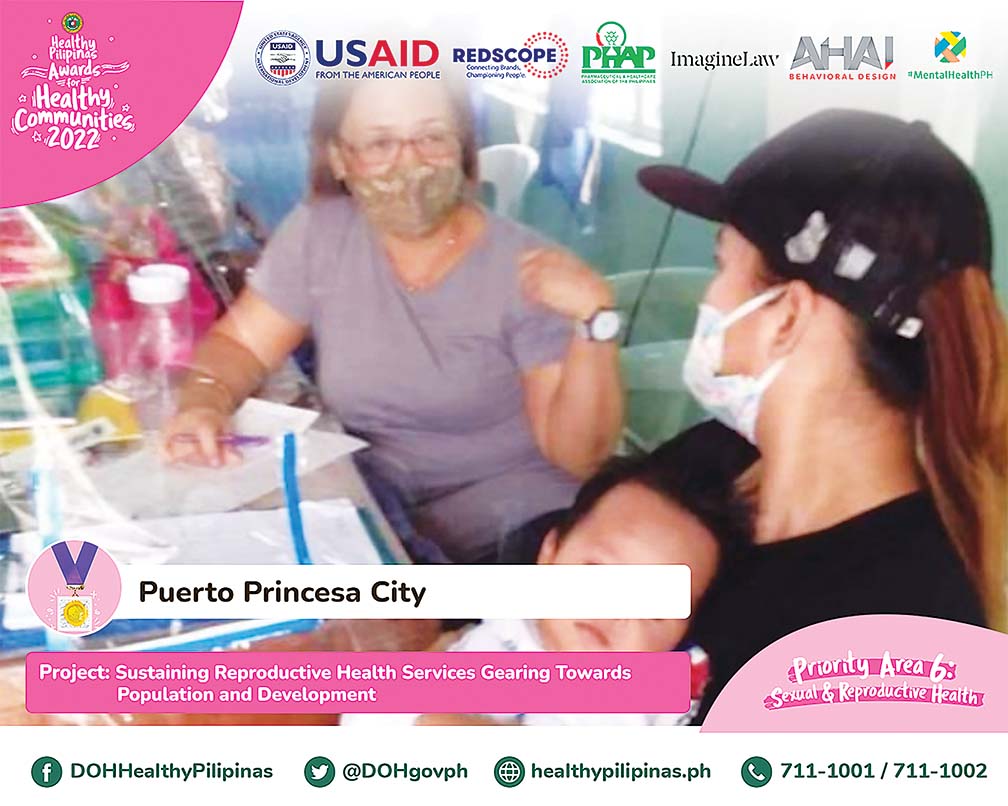
Based on the Commission on Population and Development in MIMAROPA, Puerto Princesa City has had the highest reported pregnancy in the region for several years.
In 2017, there were 1,592 cases while in 2018 the reported cases based on the registry was 830. It was then recognized as one of the health challenges of the city and termed as a “national emergency” by the Commission on Population and Development.
According to the World Health Organization, adolescents are the resource for a society to thrive because they give a triple dividend of health benefits for the adolescents now, for adolescents’ future lives, and for the next generation.
To understand better the context of all health challenge analysis of cause and effect, strategic interventions have been developed with the goal of effective cost investment with bigger impact, using the Pareto Principle, and desired better health outcome will be reached.
The Pareto Principle, or the 80-20 rule, is an aphorism which asserts that 80% of outcomes (or outputs) result from 20% of all causes (or inputs) for any given event.
It is undeniable that health challenges are caused by many factors. Most of these are beyond the health preventive and promotive scope. Having understood that underlying factors can be addressed by other stakeholders, intersectoral collaboration is necessary to have optimum results and to resolve health challenges, because the health condition of the population is a reflection and impact of the government, community and other stakeholders’ initiatives in providing the basic needs of the people.
Thus, upon further analysis of the impact and magnitude of each health problem, there is a realization that this can’t be done by the health sector alone, but with the integration of social, economic and other sectors—the true meaning of “holistic interventions.”
Integration of plans and interventions is one of the perceived opportunities: to have equity of accessing and receiving the same chances, “sana all” or nobody is left behind or alone, as the youth lingo termed it.
San Fernando, Camarines Sur—Adolescent Sexual Reproductive Health (ASRH)
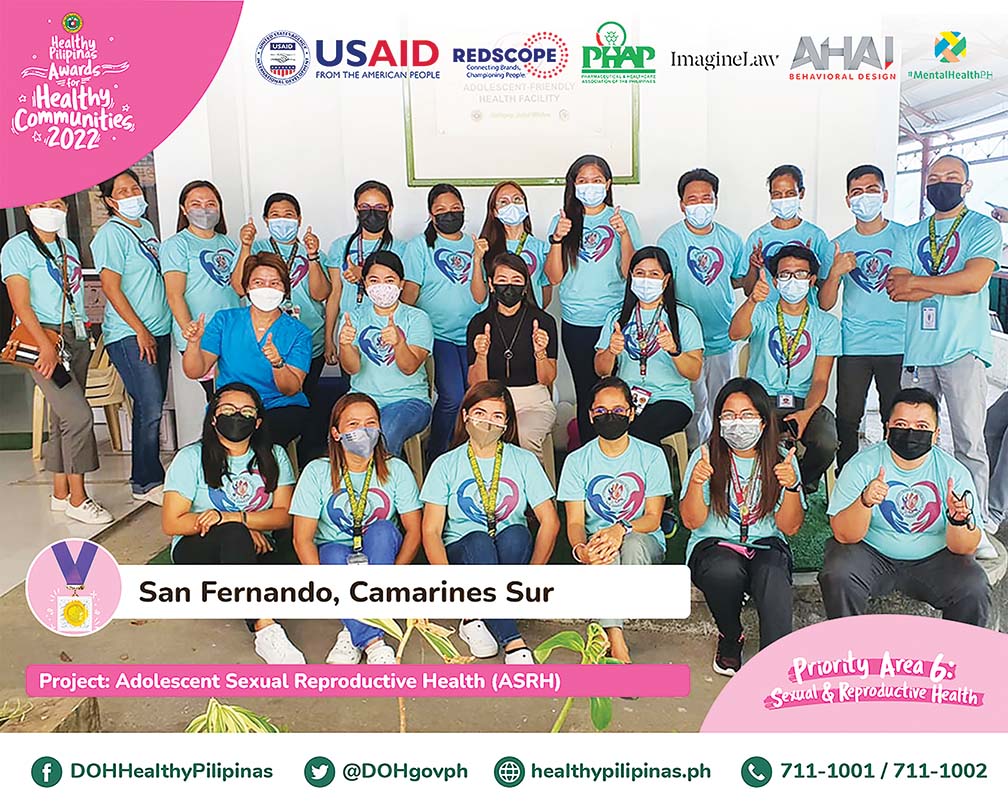
The Adolescents Sexual Reproductive Health (ASRH) program of San Fernando has been in place for about seven years. With the cooperation of different concerned agencies, this program had created a dramatic effect on the youth of San Fernando.
The ASRH offers a holistic approach. Although the main focus is their reproductive health and the increasing number of teenage pregnancy in the municipality, it also tackles different issues concerning the adolescents such us mental health problems, drugs and alcohol addiction, and school problems like bullying.
The program has an approved annual budget of P300,000 coming from health programs and LGU services. It covers school-to-school orientations, materials, food and improvement of the adolescent friendly room at the RHU.
The program has been sustained even in the time of pandemic and teenage pregnancy and fertility awareness talks are still being held in different barangays with the help of the Sangguniang Kabataan.
Adolescent Kits are distributed to teens that are reported to be COVID-19 positive patients. Through this, the program is able to take care of the youth while they are in isolation facilities. Most importantly, rapid psychosocial counseling continues as different youth issues and concerns are encountered with regards to the current situation.

